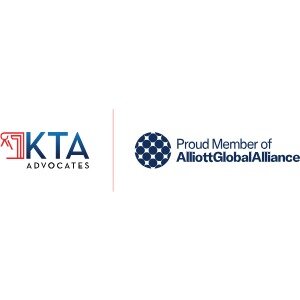Best Creditor Lawyers in Uganda
Share your needs with us, get contacted by law firms.
Free. Takes 2 min.
Or refine your search by selecting a city:
List of the best lawyers in Uganda
About Creditor Law in Uganda
Creditor law in Uganda governs the rights and obligations of creditors and debtors within the country's jurisdiction. It encompasses all legal aspects related to debt collection, enforcement of contracts, bankruptcy, and insolvency. This area of law provides mechanisms to ensure creditors are able to recover debts owed to them while also protecting debtors from unfair practices. The legal framework aims to balance the interests of both parties and promote financial stability within Uganda's economy.
Why You May Need a Lawyer
There are several situations where individuals or businesses may require legal assistance in creditor-related matters:
- Debt Recovery: When seeking to recover debts from non-paying debtors.
- Contract Enforcement: To ensure that all parties fulfill their contractual obligations, and to take legal action if they do not.
- Bankruptcy Proceedings: Legal aid may be necessary for understanding the implications of bankruptcy or insolvency, and for navigating through the process.
- Dispute Resolution: In cases of disputes between creditors and debtors, legal advice may help in resolving the issues amicably or through court action.
- Compliance with Local Laws: Ensuring that all creditor actions comply with Ugandan laws, avoiding potential legal pitfalls.
Local Laws Overview
Several key aspects of Ugandan laws are relevant to creditors:
- The Contracts Act, 2010: Provides the legal framework for all contract-related matters, including creditor-debtor relationships.
- The Insolvency Act, 2011: Addresses bankruptcy proceedings, protecting both creditors and debtors in case of insolvency.
- The Debtors Act, 1972: Governs the enforcement of debts, outlining legal remedies available to creditors.
- The Companies Act, 2012: Regulates corporate insolvency and the rights of creditors in such proceedings.
- The Financial Institutions Act, 2004: Addresses issues specific to financial lenders and their dealings with borrowers.
Frequently Asked Questions
What is the process for debt recovery in Uganda?
Debt recovery typically involves issuing a demand letter, negotiation attempts, and resolving disputes through court actions if necessary. Legal advice can provide a strategic approach to effectively recover debts.
What rights do creditors have in bankruptcy proceedings?
Creditors have the right to be informed of bankruptcy filings, participate in meetings concerning the debtor's estate, and make claims for any funds available for distribution.
Can a creditor take legal action if a debtor defaults on a contract?
Yes, creditors can pursue legal action, including filing a lawsuit for breach of contract, in order to enforce their rights under the contract.
How can a creditor ensure compliance with the law when collecting debts?
Creditors must adhere to relevant laws and policies, avoid harassment, and respect debtor's rights while engaging in debt collection practices.
What protection do debtors have against unlawful creditor actions?
Debtors can seek legal protection if creditors engage in unethical or illegal practices, such as harassment or charging unlawful interest rates.
How does the Insolvency Act affect creditors?
The Insolvency Act outlines procedures for insolvency that may impact the rights of creditors, especially concerning claims and prioritization of payments.
Who regulates creditor practices in Uganda?
The Bank of Uganda, along with other legal institutions, regulates creditor practices to ensure that ethical standards are maintained.
Can a creditor claim interest on overdue debts?
Yes, creditors can claim interest if it was stipulated in the contract or agreed upon by both parties.
What legal recourse is available if a creditor is being defrauded?
Legal recourse includes filing criminal charges or civil suits against the debtor for fraud, with the option of seeking restitution.
How can creditors prevent future defaults?
Implementing thorough credit assessments, obtaining sufficient collateral, and drafting clear, enforceable contracts are key strategies to prevent defaults.
Additional Resources
For further assistance, the following resources can be helpful:
- Ugandan Law Society: Offers referrals to qualified legal professionals experienced in creditor law.
- The Commercial Court Division: Deals with commercial disputes, including creditor-debtor cases.
- The Uganda Registration Services Bureau (URSB): Provides services related to company registration and insolvency matters.
- Bank of Uganda: Oversees financial institutions and creditor-related policies.
Next Steps
If you are seeking legal assistance for creditor issues, consider the following steps:
- Consult a Lawyer: Contact a lawyer who specializes in creditor-debtor relations to assess the specifics of your situation.
- Gather Documentation: Compile all relevant documentation, including contracts, correspondence with debtors, and any evidence of non-payment.
- Understand Your Rights and Obligations: Familiarize yourself with local laws and principles related to creditor actions in Uganda.
- Engage in Dialogue: Attempt to resolve disputes through direct communication or mediated negotiation when possible.
- Consider Legal Action: If necessary, proceed with legal action to enforce your creditor rights, ensuring that all legal procedures are followed.
Lawzana helps you find the best lawyers and law firms in Uganda through a curated and pre-screened list of qualified legal professionals. Our platform offers rankings and detailed profiles of attorneys and law firms, allowing you to compare based on practice areas, including Creditor, experience, and client feedback.
Each profile includes a description of the firm's areas of practice, client reviews, team members and partners, year of establishment, spoken languages, office locations, contact information, social media presence, and any published articles or resources. Most firms on our platform speak English and are experienced in both local and international legal matters.
Get a quote from top-rated law firms in Uganda — quickly, securely, and without unnecessary hassle.
Disclaimer:
The information provided on this page is for general informational purposes only and does not constitute legal advice. While we strive to ensure the accuracy and relevance of the content, legal information may change over time, and interpretations of the law can vary. You should always consult with a qualified legal professional for advice specific to your situation.
We disclaim all liability for actions taken or not taken based on the content of this page. If you believe any information is incorrect or outdated, please contact us, and we will review and update it where appropriate.
Browse creditor law firms by city in Uganda
Refine your search by selecting a city.














